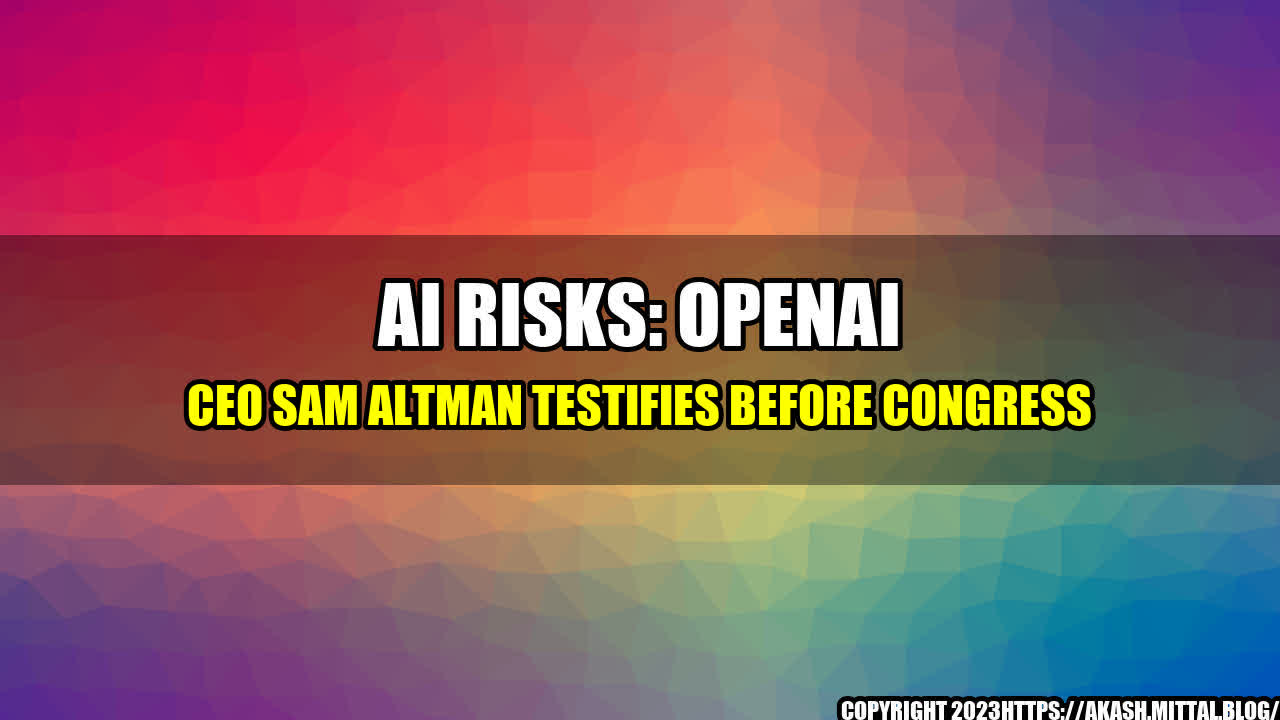Have you ever thought about the possibilities that AI can bring to our lives? Maybe you already own a personal assistant like Siri or Alexa, or you've experienced the joy of a self-driving car. These advanced technologies aim to make our lives easier, safer, and more productive, but they also bring significant risks that cannot be ignored.
Recently, OpenAI CEO Sam Altman was invited to testify before Congress about the dangers of AI and the risks it poses to society. As a leading figure in the field of artificial intelligence, Altman pointed out that although AI has brought tremendous benefits to humanity, it could also become a threat if not properly managed and regulated.
AI Risks
The risks posed by AI are numerous, and they range from the potential misuse of personal data to the creation of lethal autonomous weapons. Altman presented several examples to illustrate the risks that AI brings to our society:
- Job Displacement: AI-powered machines can automate many tasks that were previously performed by humans, leading to significant job loss and economic disruption.
- Bias and Discrimination: AI systems are not always neutral, and they can perpetuate biases and discrimination, especially in areas like hiring, lending, and policing.
- Security Threats: AI algorithms can be hacked or manipulated, leading to security breaches in critical infrastructure, such as power grids, transportation systems, and financial networks.
and Case Studies
While the risks of AI may seem abstract, they can have a profound impact on individuals and communities. Altman shared some personal anecdotes and case studies to illustrate this point:
- Altman recounted a story of a friend who lost his job as a truck driver to an AI-powered self-driving truck. His friend struggled to find a new job and had to relocate to a different state to start a new career.
- Altman mentioned a study that showed how AI-powered hiring tools were discriminating against women candidates. The algorithms learned to exclude resumes containing words like "women" or "female" and favored male candidates, perpetuating gender bias and stereotyping in the workplace.
- Altman highlighted the case of a cybersecurity firm that used AI to create a malware that could evade detection by other security systems. The malware was designed to target a specific country's infrastructure and could cause widespread damage if deployed.
Key Takeaways
As Sam Altman's testimony shows, AI is a double-edged sword that can bring both benefits and risks. To ensure that AI is used for the greater good, we need to take proactive measures to mitigate its risks:
- Regulate AI: Governments and institutions should establish clear guidelines and standards for the development, deployment, and use of AI systems. This includes ensuring that AI is ethically responsible, transparent, and accountable.
- Invest in Education and Training: As AI continues to transform the economy and workforce, we need to invest in education and training programs to help individuals acquire the skills they need to thrive in a world of AI.
- Promote Research and Collaboration: AI is a rapidly evolving field that requires ongoing research and collaboration between academia, industry, and government. By promoting open research and collaboration, we can ensure that AI is developed in a responsible and beneficial way.
Reference URLs and Hashtags
For more information on AI and its risks, you may visit the following websites:
Here are some relevant hashtags for this topic:
- #AIRisks
- #AIRegulation
- #AIEthics
- #AICollaboration
This article belongs to the category of Technology and Society.

Curated by Team Akash.Mittal.Blog
Share on Twitter Share on LinkedIn